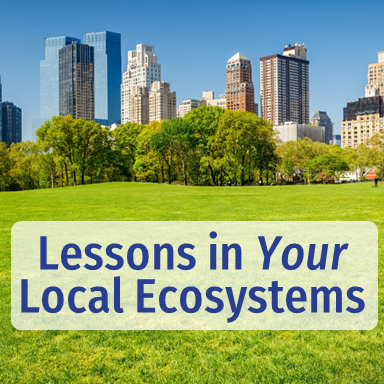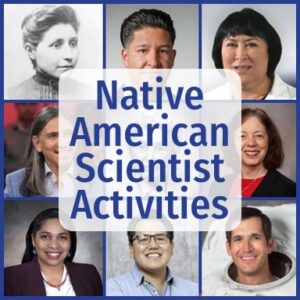
Local Ecosystem Lessons
Picture this… your students are having fun, learning and exploring, excited and engaged, and immersed in local ecosystem lessons.
Where are you? You’re sipping coffee and watching! You planned NOTHING! The reins are in someone else’s hands today!
Every year, this is what I experience when the local watershed group comes into my classroom for a day. (You can see a “horseshoe crab day” video here!) The fabulous thing is that they do all the heavy lifting. They have pre-made lessons, tons of hands-on activities, and they lead the lesson themselves. All I have to do is contact them and choose which lesson I’d like my kids to have this year. Yup, that’s it.
Finding Local Groups to Help
There are soooo many local groups that would be willing help with local ecosystem lessons for your classroom. Many local groups even align their environmental lesson to your state learning standards!
Here’s what to do:
- Go to the website environmentalgroups.us and click on your state. A list of local groups will come up.
- Scroll through the groups’ mission statements to find a few that seem like the right fit.
- Call them! Or, visit their website and find their email. Tell them who you are and ask if they have any outreach programs. If they do, they’ll be more than happy to explain how their system works.
- Sit back and watch the magic happen!
You may have to do a little phone tag or emailing to find the right fit, but it’s smooth sailing once you’ve established a relationship.
Get Kids Invested in Their Local Ecosystem
I also teach students about problems in our local ecosystems with a research project. At the end of my ecosystems unit, kids create a presentation about a local environmental issue. I give them a bunch of issues to choose from, but they often find their own, too.
The result is phenomenal. Not only do the students learn about their local environment, but they become invested in it, too.
You don’t have to be an expert on your local ecosystems to do this project. Sadly, many environmental issues are not unique to one specific place. For instance, think of these universal problems:
- Invasive species
- Watershed pollution
- Deforestation
- Agricultural pollution
- Problems humans and local wildlife (coyote, raccoon, etc.)
If you are interested in having students research issues in your local ecosystems, check out this resource I created. It guides students through researching an environmental problem in their hometown by providing research prompts, a research graphic organizer, and a student-friendly rubric. And, so you don’t have to do the research yourself, I give you a list of 10 different environmental problems likely to be a problem in your area.

I hope you find teaching lessons in a local ecosystem as rewarding (and easy!) as I do!
Share it:
- Read more about: Environmental Issues



